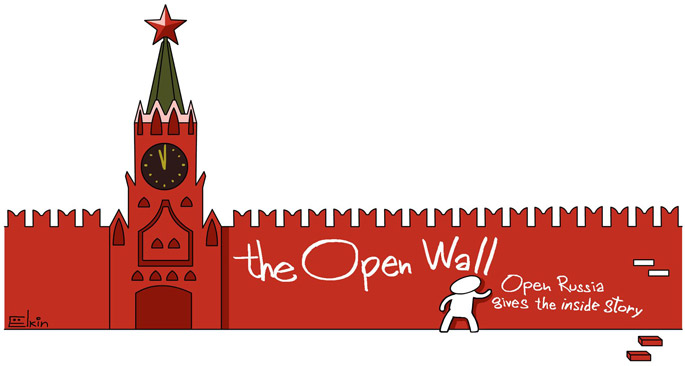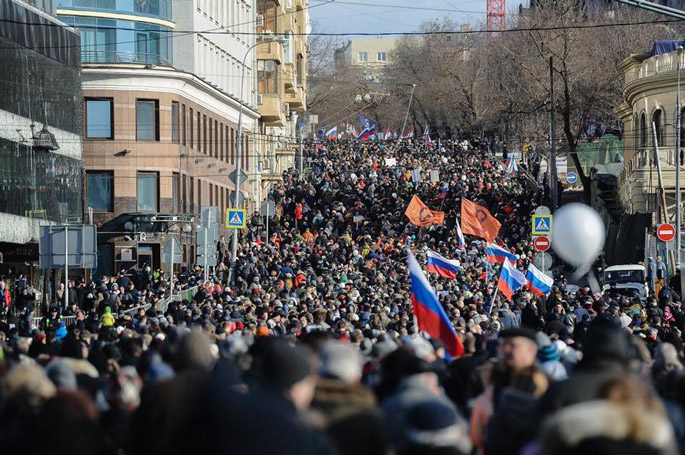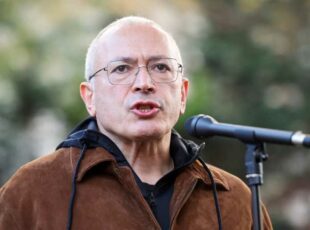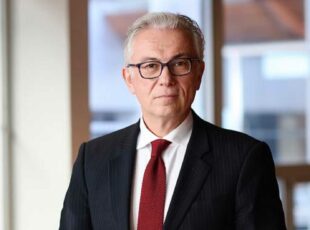Boris Nemtsov (1959-2015)

Boris Nemtsov (1959-2015)
On Saturday, a march in memory of Boris Nemtsov, murdered one year ago, was held in Moscow. According to official figures issued by Moscow’s Interior Ministry, a mere 7,500 people turned out for the event, but an independent assessment by the White Counter group put the figure at a much higher 24,000. Respectable figures, but nothing like the numbers that protested in 2011-12 against fraudulent elections.

Numerous demonstrators carried placards with Nemtsov quotes: “Putin’s policies are based on total lies;” “Sanctions and isolation are the result of the Kremlin’s absurd policies;” “Putin’s regime represents a threat to all humanity”… Those phrases still resonate, but what do we do with them now, without Nemtsov?
Rallies in memory of Nemtsov were held in numerous Russian cities besides Moscow: St Petersburg, Nizhny Novgorod, Yaroslavl, Yekaterinburg … But although this past year has provided the populace with ample cause to protest, only the name of Nemtsov has generated truly large-scale opposition rallies. On the one hand, this is testament to people’s respect for the memory of the slain politician, and to their resentment at the course of the investigation; on the other, however, we cannot fail to recognise the subdued state of civil society: “Right then, we’ve done the march – and what now? Meet again in a year, shall we?”
One of the organisers of Saturday’s march, oppositionist politician and former State Duma deputy Gennady Gudkov, believes that the Russian government has benefited from Nemtsov’s murder: “It’s beyond any doubt that his killing has scared some, silenced others, made people leave the country. This was the murder of an individual who represented a vital link in the oppositionist camp.”
The unsatisfactory investigation into Nemtsov’s murder is to be expected; the perpetrators have been identified, but not the mastermind. Yet all the leads point to Chechnya. We know that the insignificant Ruslan Muhudinov (whose current whereabouts are unknown) worked as a driver for the influential Chechen, Ruslan Geremeyev.
Lawyer Vadim Prokhorov explains what this means: “Unlike Muhudinov, Geremeyev really is a serious player – he’s a member of Kadyrov’s inner circle, and he’s a close relative of Adam Delimkhanov, who is essentially second in command in Chechnya. In January of this year, Delimkhanov was screaming that they’d hunt down oppositionists anywhere in the world if need be, not just in Russia.”
Gennady Gudkov believes the Kremlin merits quite specific accusations in connection with the Nemtsov case: “I don’t think that Nemtsov was killed at the behest of the federal government, but the fact that the investigation team was prevented from working properly is entirely the fault of the former, and entirely the fault of the Russian establishment. The Kremlin effectively forbade the investigation from finishing the job and bringing the real organisers of the murder to justice. Which suggests that the Kremlin is shielding Nemtsov’s killers today.”
That Boris Nemtsov played a key role in consolidating the Russian opposition is a fact acknowledged by various experts, and now that PARNAS and Yabloko are once again considering a merger, Nemtsov’s presence is missed yet more acutely.
Nemtsov’s plans to run for the Duma were widely known. And there’s no doubt his appearance in Okhotny Ryad would have given the regime plenty of headaches. Dmitry Muratov, editor-in-chief of Novaya Gazeta, saw him in action in Yaroslavl, where, against all the odds, he was elected to the regional legislature. “He transformed Yaroslavl’s entire political landscape – and did so virtually single-handedly. Everything changed: a lot of illegal construction projects got cancelled, deputies began taking their lead from him, a number of administration figures caught squandering public funds ended up resigning. There were a lot of things he didn’t have time to achieve. He was at the very beginning of his journey. But it was Boris Nemtsov alone who managed to transform the social atmosphere of the city – ordinary Yaroslavlians stood up for him, realising how much could be achieved.”
If Boris Nemtsov were alive today, he would almost certainly be protesting, loud and clear and publicly, against the regime’s latest plans to censor news accessible via search engines, and to systematically stifle the mechanisms of election monitoring. But let us not make him a martyr for the cause; let us keep the cause alive. Even in death, he can show us the way forward.



